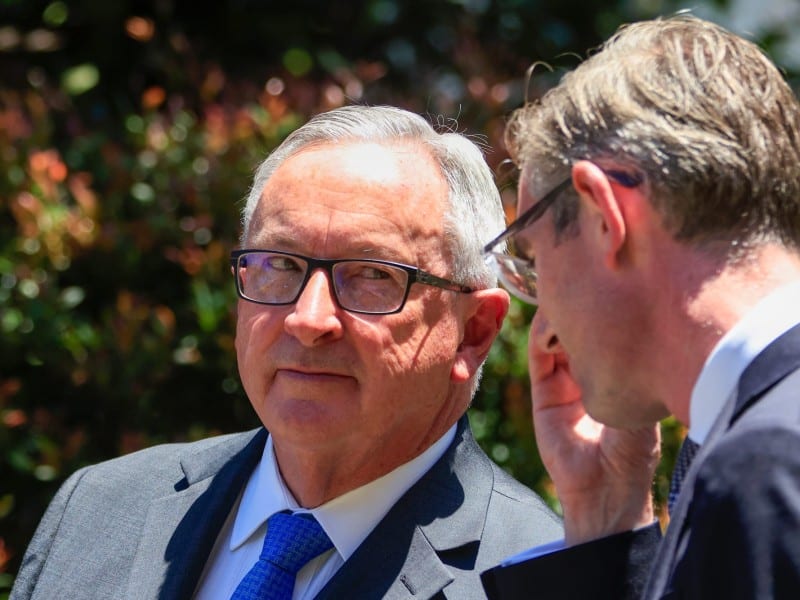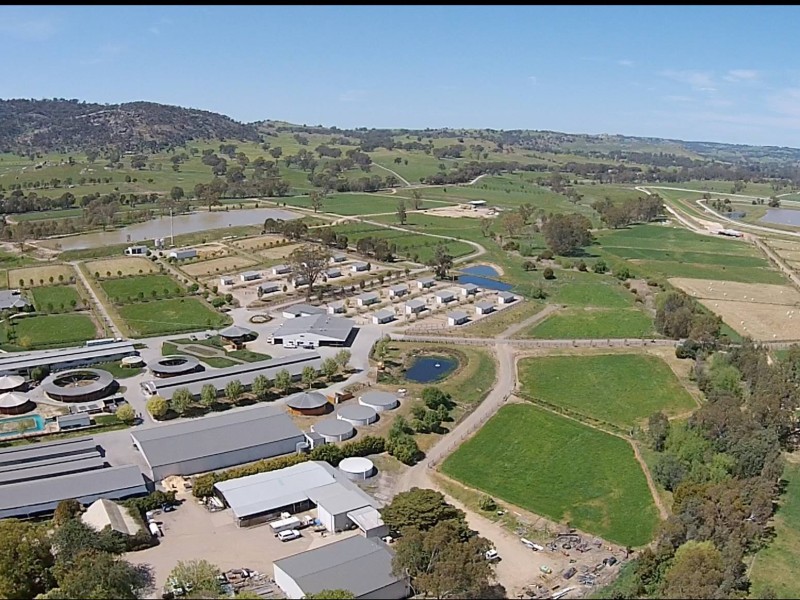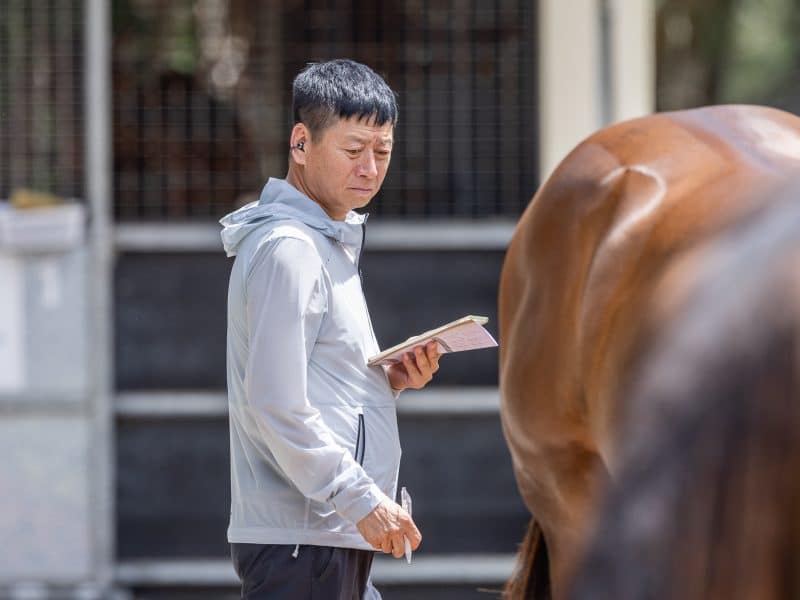Putting a name on it – why bookies sponsor race clubs
Sponsorship deals for Australian race clubs have evolved far beyond a bit of branding on the winning post. But while these agreements provide valuable revenue for clubs, what’s in it for the sponsors, particularly Australia’s corporate bookmakers?
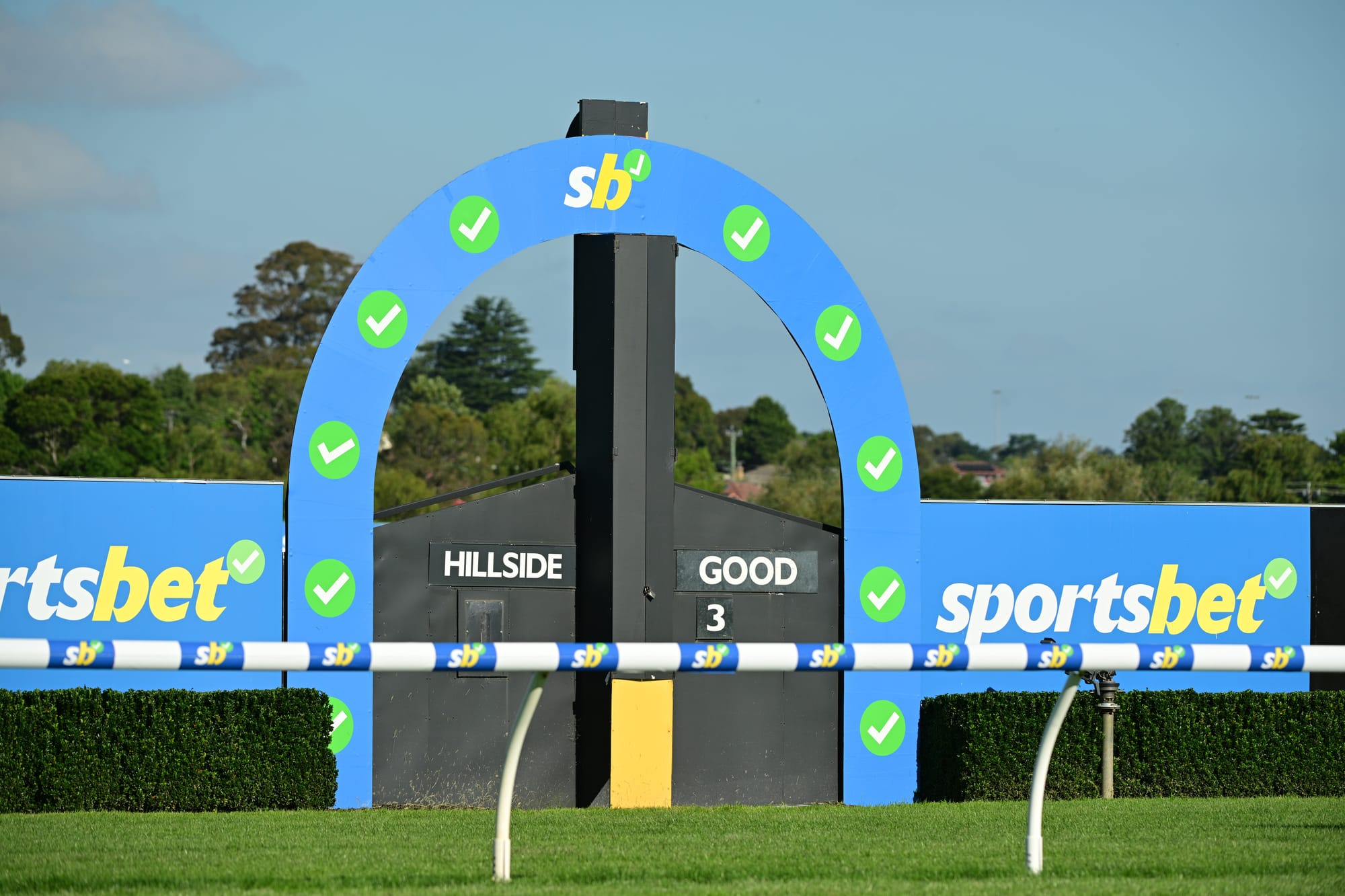
Within six months of the marquee 2008 High Court decision, which cleared the way for corporate bookmakers to market to the Australian population at large, one of the country’s iconic racecourses, Sandown, was renamed Betfair Park.
The deal with the Melbourne Racing Club (MRC) was the first time a sponsor had claimed naming rights over a metropolitan track. It was a significant moment that rankled racing administrators outside the MRC. Then Racing Victoria chief executive Rob Hines said he’d wished the MRC had done the deal with industry partner Tabcorp.
Fast forward 17 years and race club naming rights, especially for bookmakers, are commonplace, particularly in Victoria.
This week alone, we have races at Sportsbet-Ballarat, Sportsbet Sandown, Ladbrokes Geelong, Sportsbet-Wangaratta and bet365 Swan Hill.
Aspiring player PickleBet has recently acquired naming rights for Werribee, Wodonga, and now Warwick in Queensland, where Ladbrokes has a stronghold, primarily through the naming of greyhound tracks. However, that monopoly was recently loosened by BetDeluxe.

Sportsbet, Australia’s biggest online bookmaker, has also broken down the ‘red wall’ and got itself into Queensland, via sponsorship deals with Nanango and Bundaberg. Ladbrokes got one back in Victoria through a recent deal with Bendigo.
But the marketing budgets of wagering companies are far from what they were two or three years ago. The “‘land grabs” of the post-pandemic wagering boom are gone and bookmakers are strategic in where they place their branding and their interests.
Flemington’s brand as Australia’s most famous racetrack is deemed too valuable for Tabcorp’s sponsorship to encompass naming rights. However, the publicly listed wagering giant extracts other value from the relationship and played a major role in the media rights deals struck by the Victoria Racing Club.
Sportsbet’s two major club sponsorship plays in the past two years have been the five-year deal with the MRC, and the seven-year deal with the South Australian Jockey Club.
Sportsbet’s chief commercial officer Nathan Arundell said there was not a one-fits-all approach to engaging with race clubs on sponsorship, and that it depended on the circumstances.
“From our point of view, it’s probably not about the value that it generates directly,” he told The Straight.
“Yes, there is branding on course, and we get plenty of eyeballs through Sky seeing the blue signs and all those things, but it is more about what we’ve done, and some of our sponsorships, they have different objectives.”
Arundell points to how Sportsbet has worked closely with the MRC since signing that deal in December 2023, with a view to achieving the aims of both the club and the sponsor.

“The MRC sponsorship, for example, the big tier one, it’s all about trying to innovate and bring new people to the racetrack. We leverage our sporting partnerships, trying to get those sports customers to the racetrack and then cross-sell them into racing,” he said.
“And to be honest, it sounds logical, we attract all our new customers through sport and cross-sell them into racing, but you’d be surprised how many people in racing actually see sport as the enemy rather than the gateway to racing punters.”
The prime example of this approach was getting NFL star Rob Gronkowski to this year’s Blue Diamond meeting.
The market share of racing versus sports betting has been shifting in recent times, but bookmakers still see a significant connection between the two markets. Growth in one leads to growth in the other, they believe.
Sportsbet rode in like a white knight into a South Australian industry that was in a difficult spot in April last year. Its new deal with the South Australian Jockey Club helped return the state’s top four Group 1 races back to $1 million each, preserving their elite status.
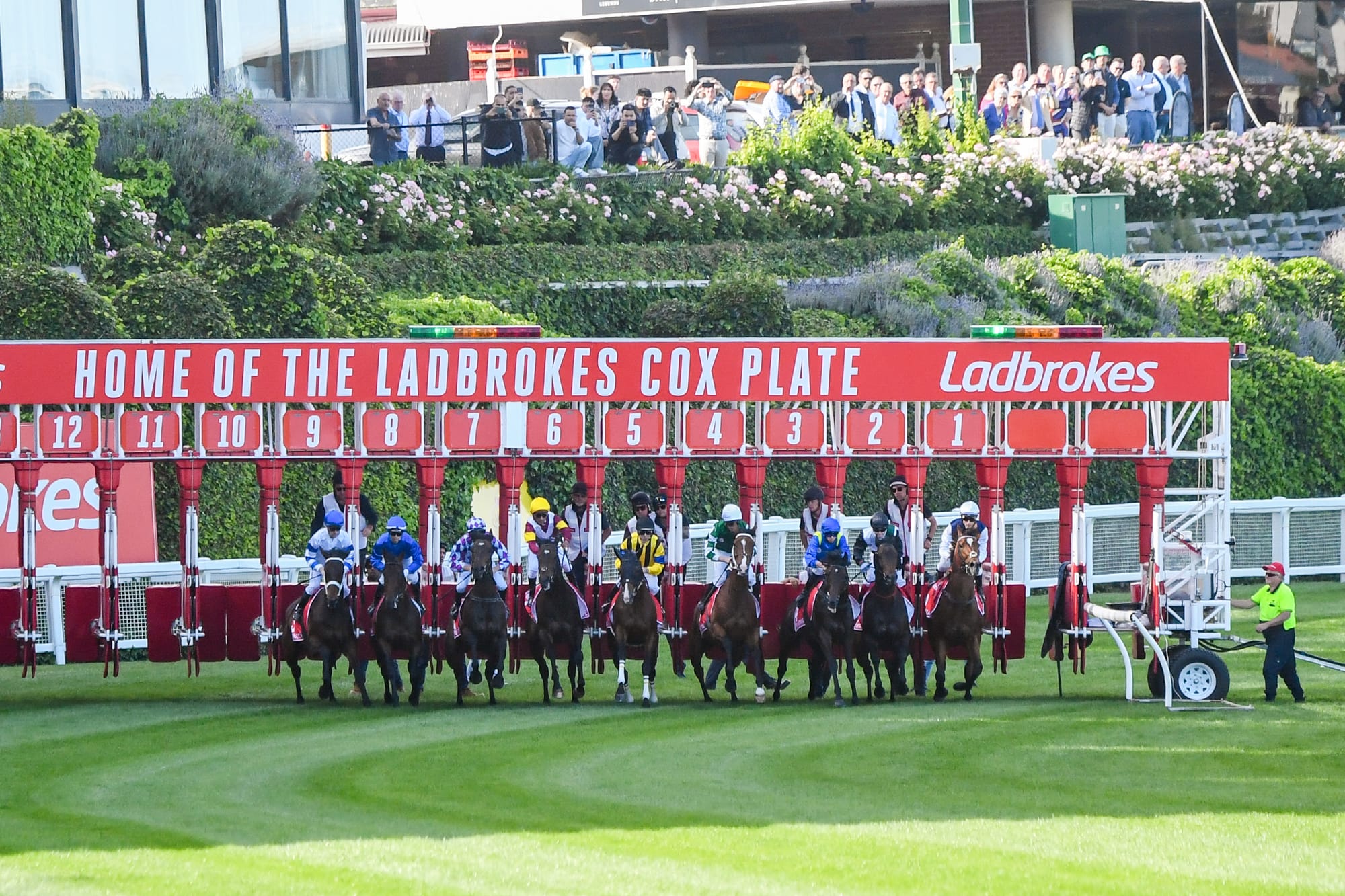
“It was about trying to help revive South Australian racing. We sat down with the committee over there and, South Australian racing was in a bad place, and we needed to come up with some ideas to try and get the carnival back on the map,” Arundell said.
“That seems to have worked and worked well.”
In July 2024, Sportsbet extended its deal to cover naming rights of country tracks Gawler, Oakbank and Port Lincoln. Arundell said the strategy there was to ensure racing’s strength at the grassroots.
“That’s more about community engagement and trying to just get people back on track because I hear a lot of people say, it doesn’t matter if people go to the races or not, as long as they’re betting and watching it on TV,” he said.
“That may work short-term, but the longer-term view for us to have a healthy racing industry, we need people back on track. We need them to fall in love with racing.”
Arundell sounds as much like a racing marketing executive as he does the man in charge of the commercial strategy of Australia’s largest bookmaker.
But it is reflective of a time where bookmakers have a stronger relationship with racing’s customers than any club or principal racing authority (PRA). Sportsbet’s most recently available data points to average monthly players on its platform of 1.2 million people.
Arundell said racing clubs and bodies were now fully aware of the value of this reach.
“Originally the relationship was more about how much could the PRAs get out of the bookmakers. Whereas now, I think they’re now realising we are their marketing arm. We’re the ones that have got the direct relationship with the customer and they need us to help them stimulate racing,” he said.
“I think it’s taken a while, but I think the penny’s dropped. Especially Victoria and New South Wales. South Australia have always been probably a little bit in front of the others, but they know they need us and we need them.”
Arundell said PRAs in particular are seeing the value in enlisting bookmakers’ understanding of customers. Sportsbet regularly presents to PRA boards on these strategies.
So, with all that reach, why would Sportsbet be interested in a couple of minor Queensland clubs, which, between them, hosted 11 meetings last season?
“We talked to some key people in Queensland, and we said, we’ll jump in, we’ll come up and we’ll show you what we do. And they’ve been a massive success,” he said.
“It’s all about the grassroots. Some of those South Australian carnivals that we go to, we do relay races. We did the tuna race in Port Lincoln, for example. And what that does, it gets all the footy and netball clubs around the area involved.
“We gave away $10,000 in prize money. That supports those local clubs. They come back again to the races, and they think it’s great.”
Arundell said the tipping point for bookmakers around club sponsorships came when Point of Consumption Tax (POCT) funding models evolved.
He said that if racing needed better funding, then bookmakers would rather step in and support directly rather than that burden falling back on governments, who would then look to increase POCT.
That approach was preferable to waiting for the industry to get a cut from an additional tax.
There is no doubt an aspect of soft diplomacy in all of this. Bookmakers are keen to make themselves appear as good corporate citizens in a world where their operations are under more scrutiny than ever.
But they are also acutely aware of the importance of racing to their business model. Sports betting may be eating into market share, but racing is a sport that has betting at its core.
“Yes, there is branding on course, and we get plenty of eyeballs through Sky seeing the blue signs and all those things, but it is more about what we’ve done, and some of our sponsorships, they have different objectives” – Sportsbet’s Nathan Arundell
There is an element of reputation risk for the bookmaker, especially if a club or an event courts controversy, as the MRC has in recent times with its board and executive upheaval, but Sportsbet is wary to avoid racing’s often messy politics.
“It’s not Sportsbet’s place to be getting involved in those politics. We will stay out of anything like that as long as it’s not damaging our brand,” Arundell said.
But it is not necessarily a buyers’ market for clubs when it comes to sponsorships. Bookmakers have reduced their budgets, particularly those under new management, such as TAB.
Arundell said from Sportsbet’s perspective, any investment had to be strategic. They aren’t exiting deals with clubs – the recent end of its agreement with Pakenham was due to the Southside merger, where Cranbourne is already sponsored by Ladbrokes – but they aren’t diving into them either.


